Microfinance and Economic Justice in Haiti
 One must be entrepeneurial to survive on less than a dollar a day. A wide variety of organizations throughout the world are using microfinance, the provision of small loans, to tap this entrepeneurial spirit and help rural women improve their livelihoods. Pioneered by the Grameen Bank in Bangladesh, this pro poor model has been proven effective again and again in India, Rwanda, Haiti, and elsewhere. The number of organizations offering micro-credit in Haiti has grown considerably but there is still a need for expansion.
One must be entrepeneurial to survive on less than a dollar a day. A wide variety of organizations throughout the world are using microfinance, the provision of small loans, to tap this entrepeneurial spirit and help rural women improve their livelihoods. Pioneered by the Grameen Bank in Bangladesh, this pro poor model has been proven effective again and again in India, Rwanda, Haiti, and elsewhere. The number of organizations offering micro-credit in Haiti has grown considerably but there is still a need for expansion.
 The phrase "micro-credit" is everywhere now and people have been using it to describe a wide variety of activities. As the Grameen Bank describes it, "...Grameencredit is based on the premise that the poor have skills which remain unutilised or under-utilised. It is definitely not the lack of skills which make poor people poor. Grameen believes that the poverty is not created by the poor, it is created by the institutions and policies which surround them. In order to eliminate poverty all we need to do is to make appropriate changes in the institutions and policies, and/or create new ones. Grameen believes that charity is not an answer to poverty. It only helps poverty to continue. It creates dependency and takes away individual's initiative to break through the wall of poverty. Unleashing of energy and creativity in each human being is the answer to poverty."
The phrase "micro-credit" is everywhere now and people have been using it to describe a wide variety of activities. As the Grameen Bank describes it, "...Grameencredit is based on the premise that the poor have skills which remain unutilised or under-utilised. It is definitely not the lack of skills which make poor people poor. Grameen believes that the poverty is not created by the poor, it is created by the institutions and policies which surround them. In order to eliminate poverty all we need to do is to make appropriate changes in the institutions and policies, and/or create new ones. Grameen believes that charity is not an answer to poverty. It only helps poverty to continue. It creates dependency and takes away individual's initiative to break through the wall of poverty. Unleashing of energy and creativity in each human being is the answer to poverty."
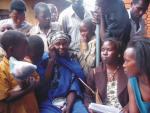 Grameen deliberately focuses on women, who are the poorest of the poor and also the hardest working. In countries like Bangladesh or Haiti, most everything is done in groups and the approach reflects that. Women join a small group of borrowers. The next person in line for a loan will not receive one until the current borrower pays back her debt. This creates a very motivated support network. As borrowers becomes established, they have the option of receiving larger loans to expand their businesses. Consistently, Grameen has recuped over 98% of their loans which is higher than banks in the United States. They have used these loans as a spring board for other programs such as "cell phone ladies" - a program through which a respected woman in a village receives and gradually pays off a cellular phone. People come to the cell phone lady to use the phone for calls, providing the woman with a livelihood and the rural community with access to communication technology that would not otherwise exist. It is a perfect example of "leapfrogging" technology. Why wait for land lines when cellular phones work even better? You can read more about activities like this on the website of Muhammed Yunus, the founder of Grameen Bank.
Grameen deliberately focuses on women, who are the poorest of the poor and also the hardest working. In countries like Bangladesh or Haiti, most everything is done in groups and the approach reflects that. Women join a small group of borrowers. The next person in line for a loan will not receive one until the current borrower pays back her debt. This creates a very motivated support network. As borrowers becomes established, they have the option of receiving larger loans to expand their businesses. Consistently, Grameen has recuped over 98% of their loans which is higher than banks in the United States. They have used these loans as a spring board for other programs such as "cell phone ladies" - a program through which a respected woman in a village receives and gradually pays off a cellular phone. People come to the cell phone lady to use the phone for calls, providing the woman with a livelihood and the rural community with access to communication technology that would not otherwise exist. It is a perfect example of "leapfrogging" technology. Why wait for land lines when cellular phones work even better? You can read more about activities like this on the website of Muhammed Yunus, the founder of Grameen Bank.
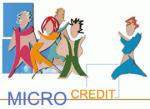 I think of microcredit as an antidote against dependency. Awful development practices have perpetuated dependency in Haiti. But microcredit provides resources people need to help themselves instead of waiting for the next group of missionaries or short-term development consultants to come onto the scene in the wake of the emergency du jour.
I think of microcredit as an antidote against dependency. Awful development practices have perpetuated dependency in Haiti. But microcredit provides resources people need to help themselves instead of waiting for the next group of missionaries or short-term development consultants to come onto the scene in the wake of the emergency du jour.
 Fonkoze is Haiti's largest microfinance institution. It offers a full range of financial and non-financial services to the poor, primarily in rural areas and mainly women. Founded in 1994, Fonkoze is owned and operated by its members. As of March 2008, Fonkoze had over 177,500 clients. Fonkoze also allows Haitians living abroad to send money home safely and affordably - no small accomplishment given the extent of funds sent from the United States and Canada to Haiti each year. Fonkoze received the CGAP’s Pro-Poor Innovation Award in 2003.
Fonkoze is Haiti's largest microfinance institution. It offers a full range of financial and non-financial services to the poor, primarily in rural areas and mainly women. Founded in 1994, Fonkoze is owned and operated by its members. As of March 2008, Fonkoze had over 177,500 clients. Fonkoze also allows Haitians living abroad to send money home safely and affordably - no small accomplishment given the extent of funds sent from the United States and Canada to Haiti each year. Fonkoze received the CGAP’s Pro-Poor Innovation Award in 2003.
 Fonkoze has been a Grameen Foundation partner since 2005. The Foundation provided $50,000 to Fonkoze to finance the establishment of Fonkoze Financial Services, expand a literacy program, and education activities on health care, the environment, human rights and basic literacy. If Fonkoze can reach even higher levels of performance and accountability, they are poised to receive more financial and technical support from Grameen. Fonkoze also accepts private donations. As of 7/4/2008, there seems to be a problem with their website but here is their address and contact information:
Fonkoze has been a Grameen Foundation partner since 2005. The Foundation provided $50,000 to Fonkoze to finance the establishment of Fonkoze Financial Services, expand a literacy program, and education activities on health care, the environment, human rights and basic literacy. If Fonkoze can reach even higher levels of performance and accountability, they are poised to receive more financial and technical support from Grameen. Fonkoze also accepts private donations. As of 7/4/2008, there seems to be a problem with their website but here is their address and contact information:
Fonkoze USA
50 F Street, NW
Suite 810
Washington, DC 20001
tel: (202) 628-9033
fax: (202) 628-9035
Email: fonkozeusa@fonkoze.org
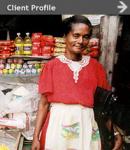 FINCA is another non governmental organization which provides microcredit services in Haiti. FINCA Haiti is head quartered in Les Cayes (Aux Cayes), the regional headquarters of the Southern Department. It has branches in Aquin, Petite Goave, Ounaminthe and Chardonniere. FINCA states its average client is a married woman with 3-7 children who sells food stuffs, cookware, charcoal, used clothing, or soft drinks in a local market near her home. As the website points out, even 1 dollar per day of added income has an enormous impact on the entire family. There are over 12,508 FINCA clients divided into 792 village banking groups in Haiti. 98% are women and the average loan size is 223 dollars. Click here to learn how you can support FINCA by donating, volunterering, or raising awareness about the importance of micro-credit to Haiti.
FINCA is another non governmental organization which provides microcredit services in Haiti. FINCA Haiti is head quartered in Les Cayes (Aux Cayes), the regional headquarters of the Southern Department. It has branches in Aquin, Petite Goave, Ounaminthe and Chardonniere. FINCA states its average client is a married woman with 3-7 children who sells food stuffs, cookware, charcoal, used clothing, or soft drinks in a local market near her home. As the website points out, even 1 dollar per day of added income has an enormous impact on the entire family. There are over 12,508 FINCA clients divided into 792 village banking groups in Haiti. 98% are women and the average loan size is 223 dollars. Click here to learn how you can support FINCA by donating, volunterering, or raising awareness about the importance of micro-credit to Haiti.
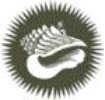 I can vouch for Fonkoze and FINCA. There are also a number of other organizations creating micro-credit programs throughout Haiti that I am less familiar with. For example, the Lambi Fund is starting a micro credit fund for farmers so that they will plant more and create a tool bank. With Lambi Fund support, the farmers will be able to purchase better seeds, tools and pesticides and start a tree nursery with 10,000 seedlings.
I can vouch for Fonkoze and FINCA. There are also a number of other organizations creating micro-credit programs throughout Haiti that I am less familiar with. For example, the Lambi Fund is starting a micro credit fund for farmers so that they will plant more and create a tool bank. With Lambi Fund support, the farmers will be able to purchase better seeds, tools and pesticides and start a tree nursery with 10,000 seedlings.
 World Concern also has had micro-credit programs in Haiti since 1989. Their webpage notes that loan sharks are often the only option available to the rural poor and that they charge interest rates of up to 240%. Sadly, Haitians often rely on these loan sharks to pay for the funerals of loved ones which results in a major financial burden. Their microcredit program is called Action Contre La Misere (ACLAM) through which they hope to increase the revenues of 8,500 men and women through group loans averaging $2,700 to 340 local groups/associations with an average of 25 members per association in the South, West, North and Northwest departments of Haiti. According to their website, the loan associations manage their own savings and loan funds. World Concern provides training on ethical business practices, management of group savings and preventative health. These trainings are important given the widespread corruption and lack of accountability in other banking mechanisms such as the "Caisse Popular" (People's Bank).
World Concern also has had micro-credit programs in Haiti since 1989. Their webpage notes that loan sharks are often the only option available to the rural poor and that they charge interest rates of up to 240%. Sadly, Haitians often rely on these loan sharks to pay for the funerals of loved ones which results in a major financial burden. Their microcredit program is called Action Contre La Misere (ACLAM) through which they hope to increase the revenues of 8,500 men and women through group loans averaging $2,700 to 340 local groups/associations with an average of 25 members per association in the South, West, North and Northwest departments of Haiti. According to their website, the loan associations manage their own savings and loan funds. World Concern provides training on ethical business practices, management of group savings and preventative health. These trainings are important given the widespread corruption and lack of accountability in other banking mechanisms such as the "Caisse Popular" (People's Bank).
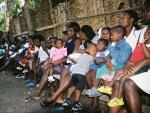 Microcredit programs work very well in conjunction with other programs. The Children's Nutrition Program (CNP) was founded by a physician from Tennessee who had made numerous trips to Haiti as a health care provider and wanted to do something about the root causes of illness in Haiti. CNP works with health care facilities in Port au Prince and Leogane to improve capacity to prevent and respond to malnutrition. They have set in place a microcredit program for participating mothers who complete a course on nutrition and small business development before being provided their first loan.
Microcredit programs work very well in conjunction with other programs. The Children's Nutrition Program (CNP) was founded by a physician from Tennessee who had made numerous trips to Haiti as a health care provider and wanted to do something about the root causes of illness in Haiti. CNP works with health care facilities in Port au Prince and Leogane to improve capacity to prevent and respond to malnutrition. They have set in place a microcredit program for participating mothers who complete a course on nutrition and small business development before being provided their first loan.
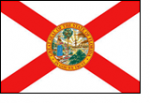 Based on reccomendations from the Florida Governor's Haiti Advisory Group, FAVACA launched the 2006-2007 Florida-Haiti Initiative, a collaboration with the State of Florida that focuses on development in Haiti by promoting economic growth, security and disaster preparedness. They have a micro-credit program that supports the provision of loans to start-up businesses in rural areas. The FAVACA website has an interesting list of partners including the Haitian Ministry of Tourism, the Ministry of Haitians Living Abroad, FONDWA (Haiti's first rural University) and others. Their website also has interesting multimedia resources. You can find a list of their staff members and contact information here.
Based on reccomendations from the Florida Governor's Haiti Advisory Group, FAVACA launched the 2006-2007 Florida-Haiti Initiative, a collaboration with the State of Florida that focuses on development in Haiti by promoting economic growth, security and disaster preparedness. They have a micro-credit program that supports the provision of loans to start-up businesses in rural areas. The FAVACA website has an interesting list of partners including the Haitian Ministry of Tourism, the Ministry of Haitians Living Abroad, FONDWA (Haiti's first rural University) and others. Their website also has interesting multimedia resources. You can find a list of their staff members and contact information here.
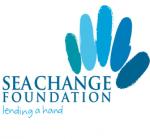 The Sea Change Foundation partners with Fonkoze and in 2007 provided $50,000 to open a new branch and $75,000 to provide capital investment to set up and bring FonkoSel to sustainability within 12 to 18 months. Fonkosel is the Haitain answer to the Grameen Village Phone program. Its objective to give access to modern communications to those who can least afford it in rural Haiti. With Teleco being as awful as it is and with cellular coverage growing each year, this is an excellent time to be expanding the Fonkosel program.
The Sea Change Foundation partners with Fonkoze and in 2007 provided $50,000 to open a new branch and $75,000 to provide capital investment to set up and bring FonkoSel to sustainability within 12 to 18 months. Fonkosel is the Haitain answer to the Grameen Village Phone program. Its objective to give access to modern communications to those who can least afford it in rural Haiti. With Teleco being as awful as it is and with cellular coverage growing each year, this is an excellent time to be expanding the Fonkosel program.
 In the past, we've written about Floresta's innnovative work to halt environmental damage and promote sustainable agriculture in Haiti. Floresta also has a church based microcredit program devoted to increasing crop yields and opportunities for rural farmers. In this way, Floresta promotes agriculture and the economy at the same time.
In the past, we've written about Floresta's innnovative work to halt environmental damage and promote sustainable agriculture in Haiti. Floresta also has a church based microcredit program devoted to increasing crop yields and opportunities for rural farmers. In this way, Floresta promotes agriculture and the economy at the same time.
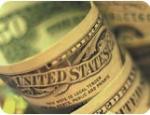 I saw that Unibank and some of the other Haitian banks are getting in on the micro-credit scene. Not sure what to think of this. Throughout Latin America, there seems to be a trend toward banks offering "micro credit" with very high interest rates. When pressed, the banks say that their interest rates are much lower than those offered by loan sharks. While this is true, microcredit has its roots not in maximizing profits but in economic justice - providing a pro poor model for those who need it most, namely women.
I saw that Unibank and some of the other Haitian banks are getting in on the micro-credit scene. Not sure what to think of this. Throughout Latin America, there seems to be a trend toward banks offering "micro credit" with very high interest rates. When pressed, the banks say that their interest rates are much lower than those offered by loan sharks. While this is true, microcredit has its roots not in maximizing profits but in economic justice - providing a pro poor model for those who need it most, namely women.
 In 2006, USAID provided support to CHF International to launch a four year job creation program in Petit Goâve, Port-au-Prince, Saint-Marc, Gonaïves and Cap-Haïtien. The program is called Konbit Ak Tet Ansamn (loose translation: working together, heads together). KATA provides improved access to capital, market linkages and investments for Haiti's micro, small and medium enterprises. Their website has a video about the program and other resources concerning their activities.
In 2006, USAID provided support to CHF International to launch a four year job creation program in Petit Goâve, Port-au-Prince, Saint-Marc, Gonaïves and Cap-Haïtien. The program is called Konbit Ak Tet Ansamn (loose translation: working together, heads together). KATA provides improved access to capital, market linkages and investments for Haiti's micro, small and medium enterprises. Their website has a video about the program and other resources concerning their activities.

Microcredit is not without its critics. Some state that these programs mostly benefit the "well-off" poor and not the poorest of the poor such as the geographically disbursed (think mountains) or those suffering from disease (think TB.) Could microcredit actually exacerbate inequalities? Others say that microcredit is not an effective tool for fighting poverty on a national scale, as these programs would need to be massively scaled up to have an appreciable impact. Even if true that micro-credit helps people cope with poverty as opposed to escaping, the impact is significant for participants and familes. Many women-centered businesses that would not otherwise exist have been established and it is impossible to put a price tag on empowerment.
These are just a few of the organizations offering microcredit services in Haiti. If you know of other effective and accountable microcredit programs, please feel free to post them in the comments section below.
Bryan

Add new comment